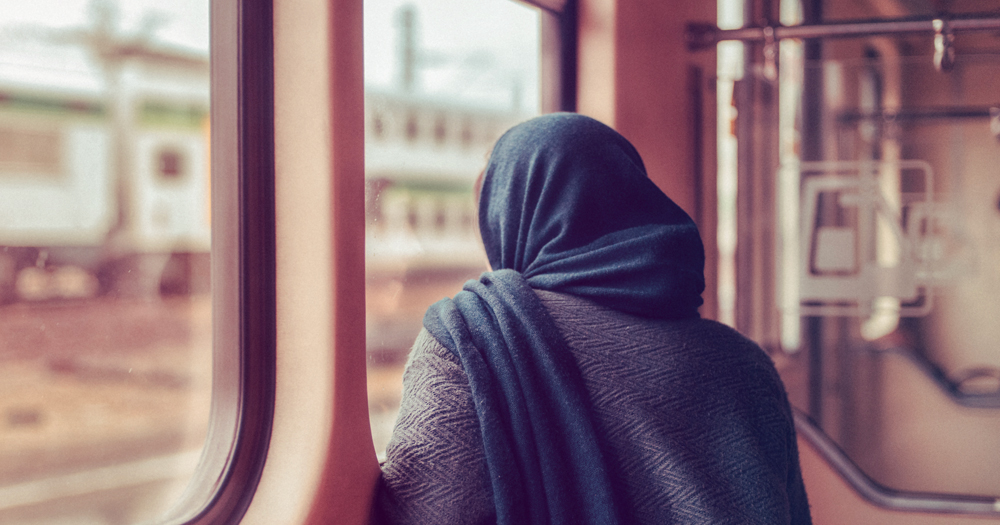Bi-erasure is a problem that all too often can be minimised, rationalised, and justified by those perpetrating it but as we learn through an illuminating piece by Bella FitzPatrick from ShoutOut, the fallout can be life-shattering for bisexual people seeking asylum.
Biphobia and bi-erasure can start with a seemingly harmless comment among friends about someone “being greedy” or “needing to pick a side”. It grows into the erasure of a whole person from the queer community because their partner is of the opposite gender. Then it becomes systemic discrimination which sees bisexual people seeking asylum deported to a country that could oppress and/or imprison them for their sexual identity.
https://twitter.com/bunnybobbybb/status/1438538155326464001
This Bisexual Awareness Week, we must acknowledge that bi-erasure is one of the leading issues bisexual people seeking asylum face as they leave their home countries for fear of persecution based on their sexual preferences.
As outlined in an article by ShoutOut, there have been a number of cases where bisexual people seeking asylum have faced issues of deportation because the powers that be didn’t believe they were truly bisexual.
Take, for instance, Constance. She is a healthcare worker from Zimbabwe who was issued a deportation order by the Department of Justice because she “didn’t seem bisexual”.
In 2016, an unnamed bisexual man sought asylum to remain in Ireland, as he faced persecution in Nigeria where he was from. The Minister for Justice and Equality refused his claim for asylum because he didn’t believe the man was bisexual. One of the reasons given for why the Minister didn’t believe him was that the man did not go to gay bars during his time in Ireland.
That it itself makes all sorts of sweeping assumptions about members of the LGBTQ+ community and ignores logistical factors such as geographical and financial limitations. With this in mind, the judge presiding over the bisexual man’s case was critical of the Minister’s reasoning, but still rejected the claim for asylum.
In the UK, Orashia Edwards was eventually granted asylum after a long case in which the judge referred to him as “dishonest”. Edwards was able to argue that he was being treated unfairly based on misconceptions about his bisexuality, and he will not face deportation to his country of origin, Jamaica.
https://twitter.com/ShoutOut_IE/status/1440262019668602890
It’s clear that bisexual people are less likely to be granted potentially life-saving asylum than their gay and lesbian counterparts, but studies now show that bisexuals are also more likely to have poor mental health, which comes as no surprise.
As written by Bella FitzPatrick for ShoutOut, “A bisexual person does not get a half-sentence in a country which criminalises homosexuality. So when it comes to discrimination aimed at ostensibly “gay” people, bisexuals are not shielded by their bi-ness, but when it comes to the protection for these groups bi people are often denied the protection that gay folks get.”
Just Like Us did independent research which also found that young bisexual people face higher rates of cyber-bullying and sexual harassment, all of which have links to bi-erasure.
So, when it comes to bi-erasure, what can we do to combat it?
FitzPatrick goes on to say, “On a day-to-day level, you can call out biphobic comments when you hear them, celebrate bi visibility week, and be an ally to your bi friends. We must also campaign for better asylum protections for all individuals seeking protection by voting for the parties that will implement these changes.”
Thank you to Shout Out and Bella for this vital and timely read. You can check it out in full here.
© 2021 GCN (Gay Community News). All rights reserved.
Support GCN
GCN is a free, vital resource for Ireland’s LGBTQ+ community since 1988.
GCN is a trading name of National LGBT Federation CLG, a registered charity - Charity Number: 20034580.
GCN relies on the generous support of the community and allies to sustain the crucial work that we do. Producing GCN is costly, and, in an industry which has been hugely impacted by rising costs, we need your support to help sustain and grow this vital resource.
Supporting GCN for as little as €1.99 per month will help us continue our work as Ireland’s free, independent LGBTQ+ media.
